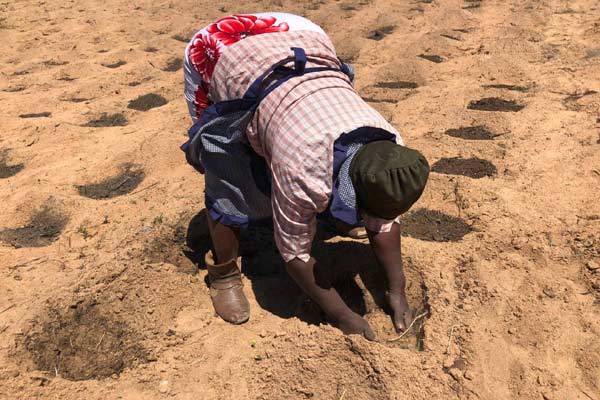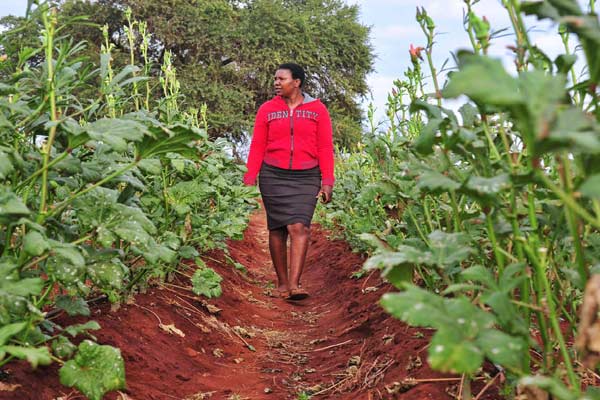Pothole farming: Conservative farming in drought-hit Zimbabwe
With potholing, farmers only disturb the soil exactly where crops are being planted, releasing less carbon, said climate official Mashungu.
Published Date - 9 November 2020, 06:01 PM
Potholing is a form of conservation agriculture, an approach based on three key principles: minimal soil disturbance, crop rotation or inter-cropping – growing two or more crops together – and permanent soil cover using mulch, straw or other crops. Pothole farming saves water and is eco-friendly, say experts.
Instead of ploughing and sowing a large area, the “pfumvudza” method involves planting crops in small holes that trap rainwater. The traditional planting method helps crops survive droughts by keeping them hydrated for longer than tilling and watering an entire field.
The planet’s soils contain more carbon than its atmosphere and vegetation combined, and the tilling involved in many conventional farming methods releases that trapped carbon back into the atmosphere, resulting in climate-heating emissions.With potholing, farmers only disturb the soil exactly where crops are being planted, releasing less carbon, said climate official Mashungu.
Cropping pattern

In August, Zimbabwe’s government started piloting the potholing programme as part of a scheme that aims to reach 1.8 million households by the end of the 2020/2021 farming season with seeds, fertiliser and training.
Farmers started planting with the method from October this year, agreeing to use it on three small plots, each measuring about 620 sq m (0.06 ha), two dedicated to cereal crops and the third for oil seed or pulse crops, like sunflower, sesame and soybean.
The holes are laid out in 52 rows, one for each week of the year. If done to the expected standard, a household should be able to harvest enough maize grain from each row to feed a family of six for a whole week.
Growing more crop with less water

Finding ways to grow food using less water is a major concern for farmers in Zimbabwe, where unpredictable rains have increasingly plagued the agricultural sector, exacerbating the impacts of an ongoing economic crisis.
According to a crop report published by the Global Agricultural Monitoring initiative in February, the 2019 October to December rainy season was one of the driest on record.
Practical Action, a global NGO which works for technologies in food production, launched its own conservation agriculture project two years and trained more than 79,000 farmers to use potholing by the time it ended in September
Mixed reaction
For some, the benefits of the method are not worth the work it takes to prepare a plot with precise, evenly spaced holes.Sikhathele Moyo, a farmer in Esigodini, outside Bulawayo, said he had only used potholing once, during a drought in 1992. “I remember digging holes when it was hot and this has affected my back until now,” complained Moyo, who is not part of either programme.
But Shuviso Vangisai, a farmer and mother of three in Makoni district, said she had reaped rewards from her hard labour. Using the training she received through NGOs she was able to produce a good yield this season – three tonnes of maize – for the first time in three years.
Now you can get handpicked stories from Telangana Today on Telegram everyday. Click the link to subscribe.
Click to follow Telangana Today Facebook page and Twitter .